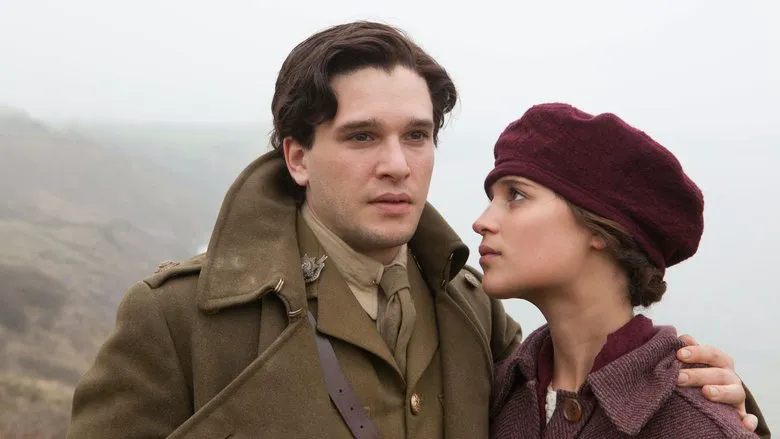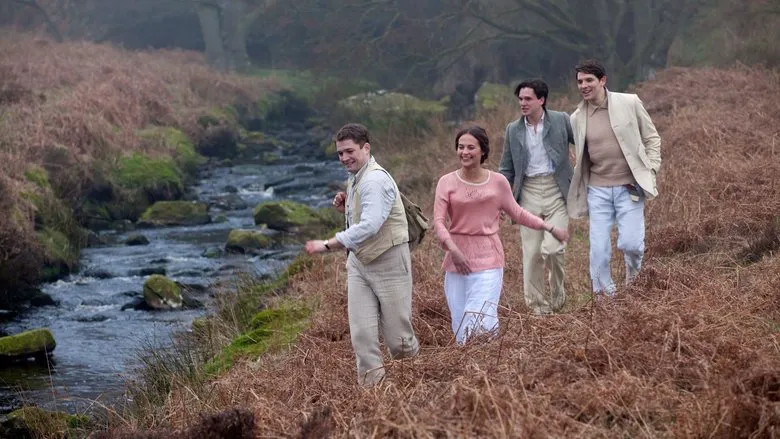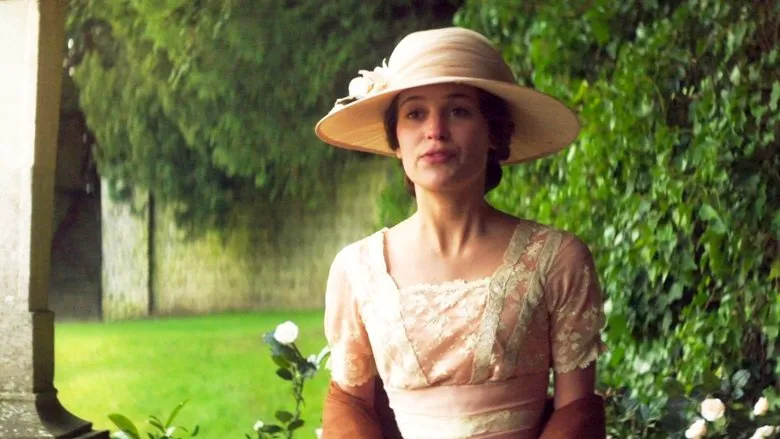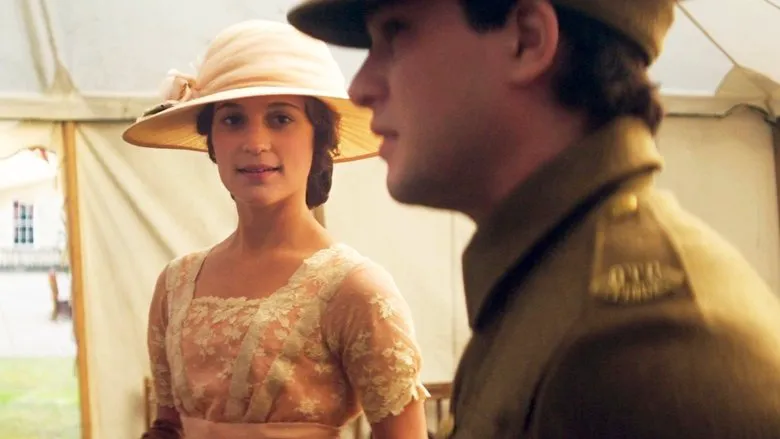Testament of Youth: A Poignant Anti-War Epic
This is a sweeping anti-war narrative that demands deep emotional investment and empathy, perhaps finding a more comfortable home on television than in cinemas.
Vera, a gifted young writer, stands on the cusp of adulthood. A prestigious university awaits, her family can provide a carefree life, and the men around her promise lifelong happiness. But the outbreak of World War I shatters these dreams. Dismissing the gravity of the conflict, her fiancé, brother, and best friend enlist, never to return. Vera, seeking purpose amidst the chaos, becomes a battlefield nurse, finding solace in saving lives. The horrors and losses of her youth find expression in her writing – vivid, evocative, and filled with a longing for peace. She can only dream of the life that war stole from her.
From Page to Screen: The Journey of “Testament of Youth”

Fun Fact: Production began in 2009, with Saoirse Ronan initially considered for the role of Vera, but scheduling conflicts prevented her participation.
Vera Brittain, not widely known in Russia, holds a significant place in British literature with her autobiographical novels. Her works serve as a lens through which later generations view the events of a century ago. Having endured hardship and witnessed pivotal moments, she captured the experiences of the kingdom’s brightest, most patriotic, and ultimately most unfortunate citizens. Her novels have become a touchstone for understanding life, akin to the seminal works of other nations. While previous attempts were made, “Testament of Youth” finally graces the big screen, and the adaptation is commendable.

The Russian title, “Воспоминания о будущем” (“Memories of the Future”), is misleading. The original title, “Testament of Youth,” perfectly captures the essence of the story. Fortunately, this change doesn’t affect the film’s core. It remains a celebration of first love, a hymn to self-sacrifice, a requiem for lost innocence, and a glimpse into the burgeoning fight for women’s rights. Vera Brittain’s life events intertwine to form a complex mosaic, challenging to portray on screen. The constraints of cinema prevent the film from fully soaring.

A Case for Television: Why “Testament of Youth” Might Shine Brighter on the Small Screen
While we often criticize Russian cinema for simultaneously producing series and films, “Testament of Youth” might benefit from a shift to television. Brittain’s prose is rich in detail, characters, and events, demanding thorough exploration. The narrative unfolds in distinct arcs: a half-hour introduction to Vera’s life, her acceptance into Oxford, the young men’s departure for war, and the harrowing experiences on the front lines. Even a two-hour film struggles to encompass this richness. A television adaptation would allow for greater depth and nuance, as demonstrated by the 1979 TV series.

Fun Fact: The filmmakers were able to find locations with turn-of-the-century architecture in London, Oxford and even train stations. As a result, almost the entire film was shot on location
A Faithful Adaptation: Emotion, Talent, and Meaning
Thankfully, the filmmakers avoided distorting the narrative to fit their own vision. The film is emotional, vibrant, moving, and deeply pacifistic, largely due to the cinematography and score. The actors also deliver strong performances. Alicia Vikander rises to the challenge of portraying Vera, adding a significant achievement to her resume. Kit Harington and Taron Egerton, rising stars of British cinema, shine in their roles. Emily Watson and Dominic West provide a welcome presence, creating a compelling cast.
The film’s central theme is clear: war. In this year of Victory Day, we’ve seen many films about the war that still resonates in Russian hearts. “Testament of Youth” offers a glimpse into the scars left on the British psyche, providing an interesting, informative, and deeply emotional experience. Our people are known for their empathy, and “Testament of Youth” offers a chance to connect through shared grief and loss.